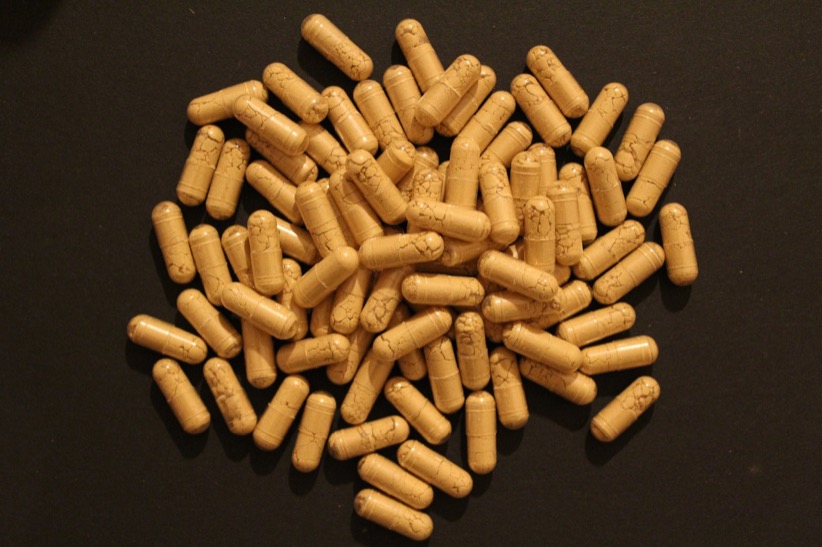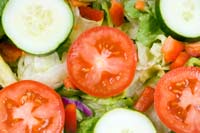Lose Weight > Common Sense To Lose Weight > Common Sense Article > Reduce High Cholesterol Naturally
Reduce High Cholesterol Naturally
Cholesterol is a fatty substance produced by the liver to help meet the body's need for hormones and bile acids. It enters the body when high-fat foods are consumed and when the body's cholesterol level is higher than necessary for normal cell functioning.
The resulting high blood cholesterol is a condition that greatly increases your chances of developing coronary heart disease. This is because extra cholesterol in the blood settles on the inner walls of the arteries, narrowing them, allowing less blood to pass through them to the heart. The higher your total blood cholesterol level, the greater your heart-disease risk.
For all adults, a desirable total blood cholesterol level is less than 200 mg/dl. A level of 240 or above is considered high blood cholesterol. But even levels in the borderline-high category (200-239) boost the risk of heart disease.
For a woman, the level of high-density lipoprotein (or HDL, the so-called +good+ cholesterol) also affects heart disease risk. If your HDL is less than 35, your risk of heart disease increases.
HOW CAN YOU LOWER YOUR BLOOD CHOLESTEROL?
Reducing your blood cholesterol level can greatly lessen the chances of coronary heart disease. Most people can lower their blood cholesterol by changing their diet, losing excess weight, and increasing physical activity.
Foods that have low cholesterol levels:
+Choose fish, poultry, and lean cuts of meat and remove the fat and skin before eating. Eat no more than about 6 ounces per day.
+Broil, bake, roast, or poach foods rather than frying them.
+Cut down on high fat processed meats including sausage, bacon, and cold cuts such as salami and bologna.
+Limit organ meats such as liver, kidney, and brains.
+Use skimmed or low-fat milk and cheeses, and low or non-fat yogurt.
+Instead of butter, use liquid or soft margarine or vegetable oils high in unsaturated fats.
+Use all fats and oils sparingly.
+Eat egg yolks only in moderation. Egg whites contain no fat or cholesterol and can be eaten often.
+Eat plenty of fruits and vegetables (5 a day is recommended), as well as cereals, breads, rice, and pasta made from enriched or whole grains (such as rye bread or whole wheat spaghetti).
Many packaged and processed foods are high in saturated fats. Get in the habit of reading food labels. Look for the +Nutrition Facts+ on the label and choose products that are lowest in fat. Also read product labels for cholesterol content.
To lower your blood cholesterol through diet, eat fewer foods high in saturated fat, total fat, and cholesterol. (The total fat in your diet should average no more than 30 percent of your daily calories and cholesterol should be held below 300 milligrams per day.)
EXERCISES TO LOWER HIGH BLOOD CHOLESTEROL:
+Regular physical activity can help improve your cholesterol profile.
+Even low to moderately intensive activity, if done daily, can provide benefits.
+Examples of such activity are pleasure walking, gardening, yard work, moderate-to-heavy housework, dancing, and home exercise.
+More vigorous exercise can raise HDL cholesterol levels (the so-called +good+ cholesterol) and will improve the overall fitness of your heart. This kind of activity is called +aerobic+ and includes jogging, swimming, jumping rope, or brisk walking or bicycling.
+Regardless of the type of activity you choose, be sure to build up your activity level gradually over a period of several weeks. Check with your doctor first if you have any health problems or if you are over 50 and are not used to energetic activity.
+If you follow these guidelines for about 6 months and your blood cholesterol does not drop to a goal level set with you by your doctor, you may need to cut back still more on saturated fat and cholesterol.
Related Articles
-
Cellulite How To Get Rid Of It
Cellulite is a normal human condition that is perceived by those who h
-
Improve Your Health By Becoming a Food Snob
Many of us have friends who may embarrass us in restaurants being f
-
How To Create The Best Weight Loss Program For You
Everyones body is unique. When it comes to losing weight, our bodies w
-
The Enemy Of Weight Loss
Going out for a meal used to be something which happened only on speci
-
4 Hot Tips You Can Start Today to Shred Belly Flab and Get a Rock Hard Body by Summer 2011
Are you tired not having the beach body you deserve? Are you worrie
-
These 5 Tips Will Help You to Avoid Junk Foods and Lose Weight With Ease!
The truth is, when youve got an inclinat
- DON'T MISS
- 9 Reasons Why Your Weight-Loss Efforts FAIL!
- 8 Reasons I Recommend The Wild Diet
- A few Fundamental Principles With regard to Women’s Weight Loss
- Mesothelioma Fact - Alarming Truth
- If You Love It, You will Do It
- How To Successfully Lose Those Extra Pounds
- Can I Lose Fat Off My Stomach Without Losing My Mind?
- Proactol: Is It Efficient Enough For Weight Loss?
- Burn Fat To Lose Weight - Dont Diet!
- Diet Pills Online: Careful Decision Necessary




